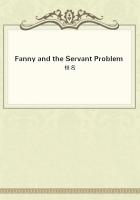"Yes, general," he said, "I weep; I weep for that boy, just twenty-four, entrusted to me by his parents, whose death I have brought about. I weep for that vast, brilliant future which is buried in an unknown grave, in an enemy's country, on a hostile shore. Oh, Campana! Campana! if ever I am king again, I will raise you a royal tomb."The general had had dinner served in an adjacent room. Murat followed him and sat down to table, but he could not eat. The sight which he had just witnessed had made him heartbroken, and yet without a line on his brow that man had been through the battles of Aboukir, Eylau, and Moscow! After dinner, Murat went into his room again, gave his various letters to General Nunziante, and begged to be left alone. The general went away.
Murat paced round his room several times, walking with long steps, and pausing from time to time before the window, but without opening it.
At last he overcame a deep reluctance, put his hand on the bolt and drew the lattice towards him.
It was a calm, clear night: one could see the whole shore. He looked for Campana's grave. Two dogs scratching the sand showed him the spot.
The king shut the window violently, and without undressing threw himself onto his bed. At last, fearing that his agitation would be attributed to personal alarm, he undressed and went to bed, to sleep, or seem to sleep all night.
On the morning of the 9th the tailors whom Murat had asked for arrived. He ordered a great many clothes, taking the trouble to explain all the details suggested by his fastidious taste. He was thus employed when General Nunziante came in. He listened sadly to the king's commands. He had just received telegraphic despatches ordering him to try the King of Naples by court-martial as a public enemy. But he found the king so confident, so tranquil, almost cheerful indeed, that he had not the heart to announce his trial to him, and took upon himself to delay the opening of operation until he received written instructions. These arrived on the evening of the 12th. They were couched in the following terms:
NAPLES, October 9, 1815
"Ferdinand, by the grace of God, etc . . . . wills and decrees the following:
"Art. 1. General Murat is to be tried by court-martial, the members whereof are to be nominated by our Minister of War.
"Art. 2. Only half an hour is to be accorded to the condemned for the exercises of religion.
"(Signed) FERDINAND.
Another despatch from the minister contained the names of the members of the commission. They were:--Giuseppe Fosculo, adjutant, commander-in-chief of the staff, president.
Laffaello Scalfaro, chief of the legion of Lower Calabria.
Latereo Natali, lieutenant-colonel of the Royal Marines.
Gennaro Lanzetta, lieutenant-colonel of the Engineers.
W. T. captain of Artillery.
Francois de Venge, ditto.
Francesco Martellari, lieutenant of Artillery.
Francesco Froio, lieutenant in the 3rd regiment of the line.
Giovanni delta Camera, Public Prosecutor to the Criminal Courts of Lower Calabria.
Francesco Papavassi, registrar.
The commission assembled that night.
On the 13th October, at six o'clock in the morning, Captain Stratti came into the king's prison; he was sound asleep. Stratti was going away again, when he stumbled against a chair; the noise awoke Murat.
"What do you want with me, captain?" asked the king.
Stratti tried to speak, but his voice failed him.
"Ah ha!" said Murat, "you must have had news from Naples.""Yes, sire," muttered Stratti.
"What are they?" said Murat.
"Your trial, sire."
"And by whose order will sentence be pronounced, if you please?
Where will they find peers to judge me? If they consider me as a king, I must have a tribunal of kings; if I am a marshal of France, Imust have a court of marshals; if I am a general, and that is the least I can be, I must have a jury of generals.""Sire, you are declared a public enemy, and as such you are liable to be judged by court-martial: that is the law which you instituted yourself for rebels.""That law was made for brigands, and not for crowned heads, sir,"said Murat scornfully. "I am ready; let them butcher me if they like. I did not think King Ferdinand capable of such an action.""Sire, will you not hear the names of your judges?""Yes, sir, I will. It must be a curious list. Read it: I am listening."Captain Stratti read out the names that we have enumerated. Murat listened with a disdainful smile.
"Ah," he said, as the captain finished, "it seems that every precaution has been taken.""How, sire?"
"Yes. Don't you know that all these men, with the exception of Francesco Froio, the reporter; owe their promotion to me? They will be afraid of being accused of sparing me out of gratitude, and save one voice, perhaps, the sentence will be unanimous.""Sire, suppose you were to appear before the court, to plead your own cause?""Silence, sir, silence!" said Murat. "I could, not officially recognise the judges you have named without tearing too many pages of history. Such tribunal is quite incompetent; I should be disgraced if I appeared before it. I know I could not save my life, let me at least preserve my royal dignity."At this moment Lieutenant Francesco Froio came in to interrogate the prisoner, asking his name, his age, and his nationality. Hearing these questions, Murat rose with an expression of sublime dignity.
"I am Joachim Napoleon, King of the Two Sicilies," he answered, "and I order you to leave me."The registrar obeyed.
Then Murat partially dressed himself, and asked Stratti if he could write a farewell to his wife and children. The Captain no longer able to speak, answered by an affirmative sign; then Joachim sat down to the table and wrote this letter:
"DEAR CAROLINE OF MY HEART,--The fatal moment has come: I am to suffer the death penalty. In an hour you will be a widow, our children will be fatherless: remember me; never forget my memory. Idie innocent; my life is taken from me unjustly.
"Good-bye, Achilles good-bye, Laetitia; goodbye, Lucien; good-bye, Louise.















